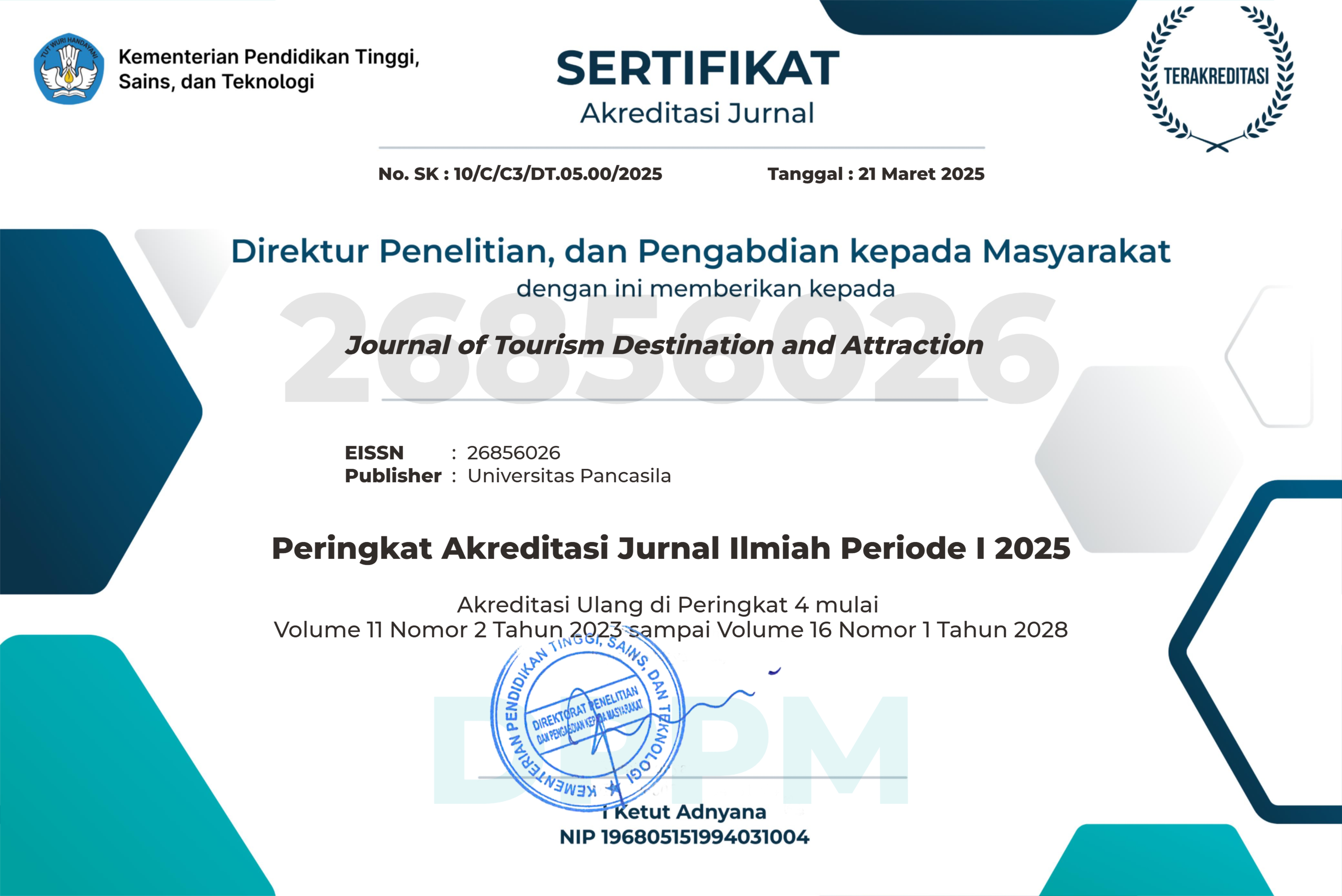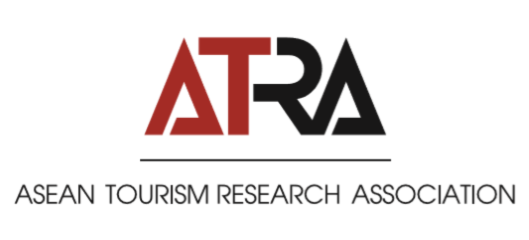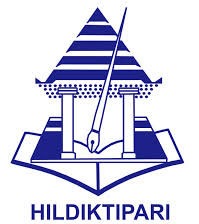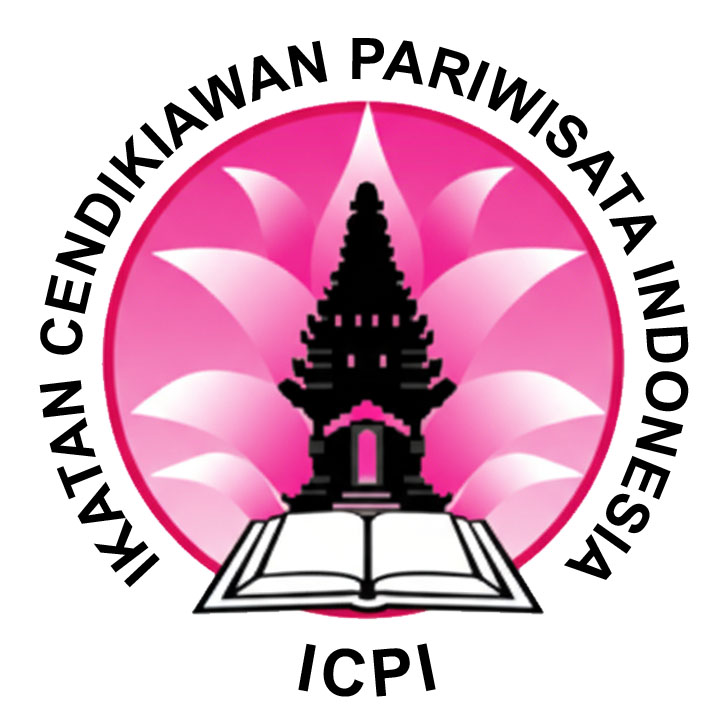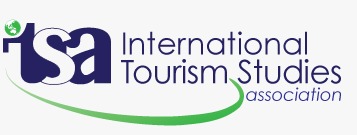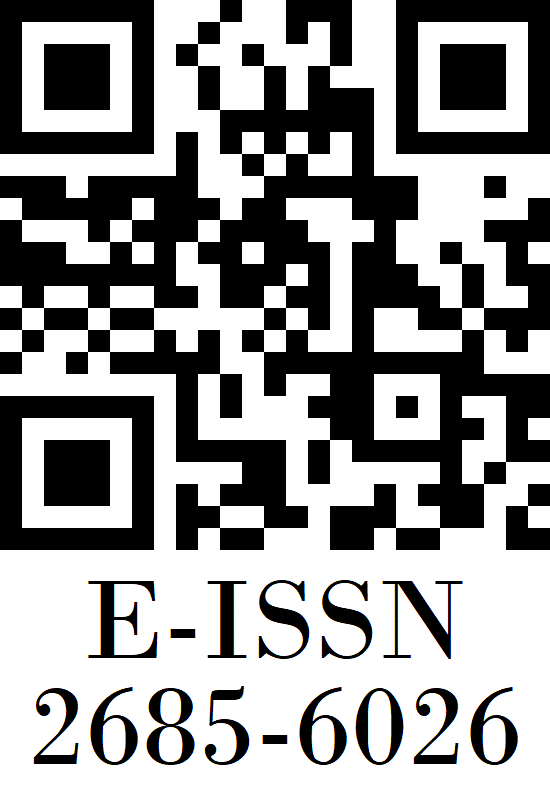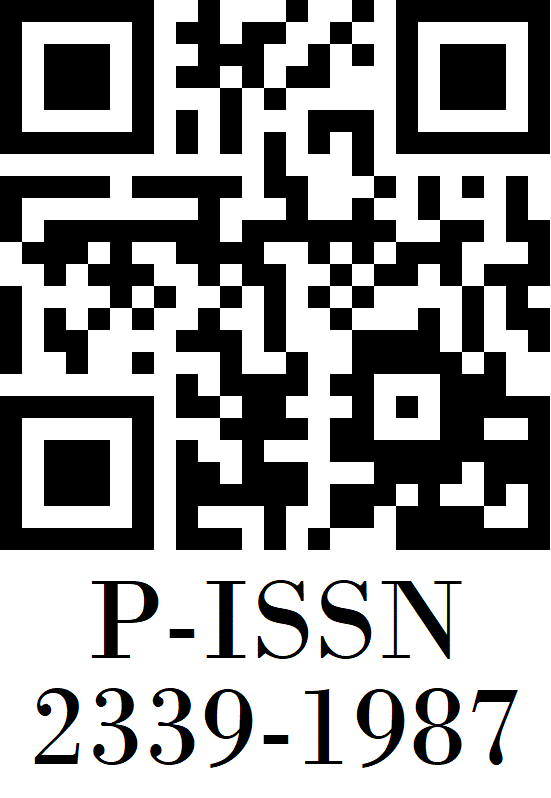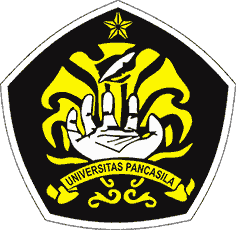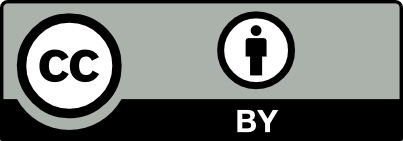Manfaat dan Hambatan Pengembangan Pariwisata Berbasis Masyarakat di Perkampungan Budaya Betawi Setu Babakan
Keywords:
cocommunity-based tourism, communities, benefits, barriersAbstract
This study was motivated by the existence of local groups working in arts and culture, farming, and food productions to support the Setu Babakan Betawi Cultural Village in its culture preservation and tourism purposes. The purpose of this study is to investigate the process of community empowerment through community-based tourism from the following criteria: perceived benefits and barriers in the development of community-based tourism. The theoretical bases of this study are the concept of community-based tourism and community participation in tourism development. The study reveals that community-based tourism have demonstrated benefits in the following dimensions: economic, social, cultural, environmental, and political. However, community-based tourism activities in Setu Babakan Betawi Cultural Village have not been optimum in empowering the communities due to these shortcomings: lack of tourism awareness among residents who are not directly involved with tourism, centralization of tourism-related policy and decision making within village management, and elite domination in tourism endeavours.
References
Basrowi dan Suwandi. 2008. Memahami Penelitian Kualitatif. Jakarta: Rineka Cipta.
Beeton, Sue. 2006. Community Development through Tourism. Australia: Land Links.
Fatimah, T. And Kanki, K. 2008. A Study On The Fealization Process Of Community Based Green Tourism In Candirejo Village, Borobudur, Indonesia. Journal Of The City Planning Institute Of Japan. 43-3:517-522.
Hermantoro, Henky. 2013. Tentang Kepariwisataan Kumpulan Tulisanku Seputar Kepariwisataan Nasional. Cinere: Aditri.
Kausar, D. dan Suhandi, A. 2004. Participatory Ecotourism Planning in Tangkahan, Leuser Ecosystem Region, North Sumatra. Tenth Annual Conference of Asia Pacific Tourism Association (APTA). July 5 – 7, Nagasaki, Jepang Kelurahan Srengseng Sawah. 2013. Laporan
Keluraan Srengseng Sawah. Jakarta.
Kementrian Pariwisata dan Ekonomi Kreatif. 2014. Profil Wisatawan Mancanegara 2009-
, Online: http://www.parekraf.go.id/userfiles/ file/A_11%20Profil%20Wisman%202009%2 0-%202013.pdf, diakses 20 Oktober 2014.
Kementrian Pariwisata dan Ekonomi Kreatif. 2014. Rangking Devisa Tahun 2009-2013, Online: http://www.parekraf.go.id/userfiles/file/ Ranking%20Devisa%20Pariwisata%202009
%20-%202013.pdf, diakses 20 Oktober 2014. Sugiono. 2011. Metode Penelitian Kuantitatif
Kualitatif dan R&D. Bandung: Alfabeta.
Sunaryo, Bambang. 2013. Kebijakan Pembangunan Destinasi Pariwisata Konsep dan Aplikasinya di Indonesia. Yogyakarta: Gava Media.
Tosun, Cevat. 2000. Limits to Community Participation in The Tourism Development Process in Developing Countries. Pergamon. Elservier. com. 613-633. Tourism Management 21, Online: www.elsevier.com/locate/tourman.




